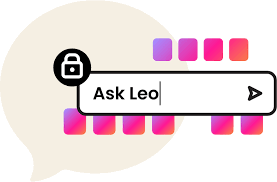2024 Лучшие бесплатные Deepnude AI: AI обнаженные
Ниже представлен список лучших AI-приложений для создания ню, которые стоит проверить!

The world of AI chatbots is rapidly expanding, with numerous players entering the arena to deliver personalized and efficient conversational experiences. Brave, the privacy-focused web browser, has now thrown its hat into the ring with Leo, an AI chatbot that places privacy protection at its core. In a landscape where privacy concerns are paramount, Leo's unique focus on safeguarding users' data sets it apart as an innovative and compelling addition. This extended article will delve into the details of Leo, its capabilities, and how its privacy-centric approach can reshape the AI chatbot landscape.
Brave is no stranger to privacy-centric technology solutions. As a browser, it has garnered a dedicated user base by prioritizing user privacy and security. The introduction of Leo represents a natural extension of Brave's commitment to empowering users with tools that enhance their online experience while preserving their data and privacy.
Brave's dedication to safeguarding user data is not new but has been at the core of its offerings. With Leo, Brave extends its commitment to privacy by introducing a chatbot that not only enhances user experiences but does so without compromising individual data security and privacy. In a landscape where the use of chatbots has grown significantly, but so too has the apprehension about how user data is handled, Brave's approach with Leo provides a beacon of assurance for users who seek the best of both worlds: advanced AI assistance and unwavering data privacy.
Chatbots have become an integral part of the digital landscape. They serve diverse purposes, from answering customer inquiries to automating tasks and even providing companionship. However, this proliferation of chatbots has brought forward significant concerns about data privacy and security.
Many chatbots in the market, including those developed by tech giants, have faced scrutiny for their data handling practices. Users have expressed concerns about conversations being recorded, analyzed, and potentially shared with third parties. These concerns have led to a demand for chatbot solutions that prioritize privacy.
In this context, Brave's introduction of Leo is a pivotal moment. It not only underscores the significance of privacy in the age of AI but also redefines the role of chatbots in the digital landscape. Leo positions itself not just as an AI chatbot but as a guardian of users' data, ensuring that conversations remain private, secure, and free from the prying eyes of data collectors. It addresses the evolving dynamics of human-machine interaction, demonstrating that chatbots can offer both advanced functionality and unwavering data privacy.
As the digital landscape continues to evolve, Leo's privacy-centric approach sets a standard for the next generation of chatbots. It signals a shift towards transparency and user empowerment, emphasizing that the data privacy concerns that have loomed over the chatbot industry can be effectively addressed without compromising the quality of AI-assisted conversations. In essence, Brave's Leo is not just another chatbot; it's a harbinger of a new era where technology and privacy coexist harmoniously in the digital landscape.

Leo, Brave's latest innovation, is designed to address these privacy concerns head-on. It is not just another chatbot but a privacy-centric AI assistant that offers a range of features while assuring users that their conversations remain private and secure.
Text Translation: Leo can translate text, making it a valuable tool for individuals communicating in multiple languages. This feature enhances accessibility and inclusivity.
Answering Questions: Users can ask Leo questions, and the chatbot provides informative and relevant answers. Leo's ability to understand and respond to queries contributes to a seamless conversational experience.
Web Page Summaries: Leo can summarize web pages, distilling lengthy content into concise and digestible formats. This feature is particularly useful for individuals looking to extract key information from online articles or documents.
Content Generation: Content creators and individuals seeking inspiration can benefit from Leo's content generation capabilities. It can assist in generating new content or ideas.
Privacy Assurance: Leo's most distinctive feature is its unyielding commitment to privacy. Brave has implemented several measures to ensure that users' data and conversations are safeguarded. Chat requests are routed through anonymized servers, eliminating the need for user accounts. Responses generated by Leo are promptly discarded, preventing any long-term data retention.
The AI chatbot landscape is crowded, with tech giants like Google and Microsoft offering their versions of conversational AI. However, Leo stands out by making privacy its central selling point. While other chatbots may record and analyze conversations, Leo does not retain any data. This approach is appealing to users who prioritize privacy and do not wish to have their conversations logged or mined for insights.

Privacy is a fundamental human right, and in the digital age, it has become increasingly important. Individuals share a vast amount of personal and sensitive information online, and the need to protect this data has never been greater. Privacy-centric technology solutions like Brave's Leo cater to the growing demand for tools that empower users without compromising their privacy.
Existing chatbots, despite their convenience and utility, have faced criticism for their data handling practices. Some concerns include:
Data Collection: Many chatbots collect and store conversations, raising concerns about the security of this data.
Data Monetization: In some cases, chatbot developers may use conversations for data monetization, potentially sharing user information with third parties.
Lack of Transparency: Users often have limited visibility into how their data is used, leading to a lack of trust in chatbot systems.
Data Security: The security of stored chat data is another significant concern, as data breaches can have severe consequences.
Brave's Leo takes a distinctly different approach. It does not record, store, or monetize user conversations. Instead, it leverages privacy-enhancing technologies to ensure that chats are private, anonymous, and secure. Here's how Leo's privacy features work:
Anonymized Servers: Chat requests are proxied through anonymized servers, adding an extra layer of privacy to the conversations.
No User Accounts: Users do not need to create accounts or log in to use Leo, further minimizing data exposure.
Data Disposal: Responses generated by Leo are immediately discarded, ensuring that there is no lasting record of the conversation.
Leo's privacy-centric design provides users with a sense of security and control over their data. In an era where data breaches and privacy violations are common, Leo offers a refreshing alternative for individuals seeking AI-powered assistance while safeguarding their personal information.
Brave's rollout of Leo for all desktop users running version 1.60 of the browser is a significant milestone. Leo was initially introduced for testing in the Nightly channel, and it is now being made accessible to a broader audience. This expansion is a testament to Brave's commitment to providing privacy-focused tools to a growing user base.
By default, Leo is available to all Brave users at no additional cost. It is powered by Meta's Llama 2 language model, delivering essential AI functionalities for a wide range of tasks. However, for users seeking an elevated experience, Brave offers a Leo Premium subscription for $15 per month. This premium tier unlocks access to additional models, including Anthropic's Claude, which is optimized for logical reasoning. Subscribers with a premium membership can also take advantage of perks like elevated rate limits, priority access during peak usage hours, and exclusive early access to new features.
The introduction of Leo by Brave underscores the growing importance of privacy in the development of AI-powered tools. As individuals become more conscious of their digital footprint, they seek solutions that prioritize their privacy without compromising the quality of service. Leo's unique approach sets a standard for future AI chatbots, emphasizing the need for transparent and privacy-focused data handling practices.
Privacy-centric AI is not a mere trend but a paradigm shift. It aligns with a broader movement that advocates for greater transparency, control, and accountability over personal data. In an era where our digital footprints are extensive, the need for robust data protection is paramount. Privacy-centric AI chatbots like Leo serve as torchbearers for a future where users can benefit from advanced AI assistance without the fear of their conversations being recorded, analyzed, or exploited for commercial purposes.
This paradigm shift extends beyond chatbots; it encompasses a wide array of AI-driven applications, from virtual assistants to smart home devices and autonomous vehicles. The future of technology will be defined by the extent to which it respects and safeguards user privacy. It is a future where individuals are not just users but active participants in defining the rules and standards that govern data handling practices.
In this new era, privacy-centric AI chatbots like Leo will pave the way for innovative and secure interactions with technology. As users become more discerning and privacy-aware, the demand for such solutions will only grow. Leo's commitment to privacy is not just a feature but a philosophy, one that resonates with a global audience seeking digital experiences that respect their rights and protect their data.
The future of privacy-centric AI is a future of empowerment. Users will have the tools and technologies at their disposal to navigate the digital landscape with confidence, knowing that their privacy is paramount. It's a future where AI is not just advanced but ethical, where data is not just a commodity but a trust, and where technology is not just a convenience but a protector of individual rights. In this future, Brave's Leo is not just a chatbot but a herald of a new digital age where privacy, technology, and human interaction coalesce seamlessly.
Leo, developed by Brave, marks a notable advancement in the realm of AI chatbots. Its emphasis on privacy protection, combined with a range of practical features, positions it as a compelling choice for users seeking secure and private AI-assisted conversations. As technology continues to advance, the demand for privacy-centric solutions will only grow, and Leo's arrival signifies a promising step in that direction. With Leo, Brave reiterates its commitment to delivering innovative, privacy-focused tools that empower users in the digital age.